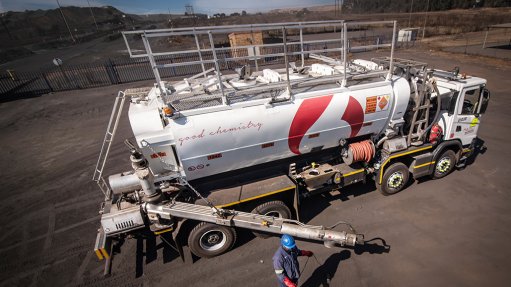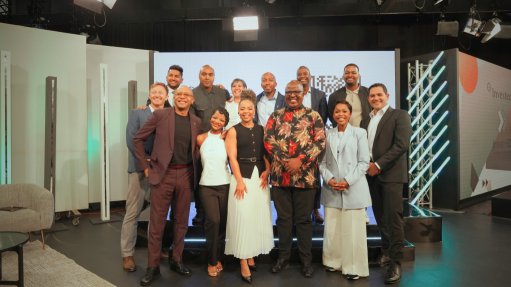Corruption goes back a very long way
I have just finished reading a book by Admiral Lord Cochrane. I am quite sure that you have never heard of him, which is hardly surprising, since he died in 1860.
The book he wrote is about his experiences in the Royal Navy. There are a number of interesting things about the book; firstly, it is quite long and, secondly, he wrote it out by hand (as did all authors of many years ago) and he includes in the book copies of the many communications he had with the admiralty and the British Parliament. A recurring theme in the book is the immense corruption in the Royal Navy at the time. All navies have some corruption and it usually involved (in times gone by) some sort of fiddle with regard to the rations of the seamen. However, it was a poor captain who would put up with poor food for the men; in the navy, the men had to fight, and to fight the they had to be fit and be fed well.
In general, the captain of a ship would supplement the rations of his crew to make them more palatable. This, clearly, was a financial burden on the captain, but there was a financial model which works like this: if the Navy ship, at time of war, managed to capture another ship, then the ship was sent back to England. The ship was termed ‘the prize’ and evaluated in terms of the ship, its cargo, guns, and so on. Half the evaluated amount was paid to the crew of the ship that did the capturing and half was paid to the admiralty.
However, what Cochrane tells us is that the evaluating committee would normally downgrade the value of the ship and the cargo. They would then pay the captain and the crew of the ship that did the capture less than they were due and the admiralty would keep the balance.
Cochrane captured a great many ships and was very unhappy with the corruption related to the prize money. Consequently, he wrote to the admiralty, setting out his unhappiness. The result of this correspondence was that, when his command came to an end, they would not promote him to captain, and neither would they give him another ship. (In a 13-month cruise, Cochrane captured, burned or drove ashore 53 ships before three French ships of the line captured him. He was later released.) He agitated furiously for command of another ship and was given a ship which “sailed like a haystack”. He continued to agitate for reforms to the Navy and the result was that he was constantly the worse for this. He decided to stand for Parliament and carry the fight there. Here he found that Parliament (before William Wilberforce) was just as corrupt as the Navy. He left the Royal Navy.
The astute reader will see that the title of this column is ‘Electrically Speaking’ and may be wondering where the electrical part of the story is. In fact, there is none. What struck me most about the tale of Cochrane (circa 1806-1830) was that all he describes in his elegant writing was written up by hand. The ships that went to sea had no electrical stuff on board at all. The propulsion was by sail and the navigation by compass and sextant. Yet the ships sailed great distances. Probably, the crew were in great discomfort but sail they did. Society had no electrical stuff.
My question is this: We have all these modern things: GPS, smartphones, word processors, email, Google Maps, Google, electrical appliances, television, and so on. And yet we seem to live in a world which is very similar to the Royal world of 200 years ago. The politicians are corrupt, governors of football federations are corrupt – many people are corrupt or immoral in their dealings. I think that this is wrong. In his time, Cochrane thought it so wrong that he wrote a book about it. Yet it still happens. All our modern stuff just makes corruption happen more subtly. It seems it will never change.
Article Enquiry
Email Article
Save Article
Feedback
To advertise email advertising@creamermedia.co.za or click here
Press Office
Announcements
What's On
Subscribe to improve your user experience...
Option 1 (equivalent of R125 a month):
Receive a weekly copy of Creamer Media's Engineering News & Mining Weekly magazine
(print copy for those in South Africa and e-magazine for those outside of South Africa)
Receive daily email newsletters
Access to full search results
Access archive of magazine back copies
Access to Projects in Progress
Access to ONE Research Report of your choice in PDF format
Option 2 (equivalent of R375 a month):
All benefits from Option 1
PLUS
Access to Creamer Media's Research Channel Africa for ALL Research Reports, in PDF format, on various industrial and mining sectors
including Electricity; Water; Energy Transition; Hydrogen; Roads, Rail and Ports; Coal; Gold; Platinum; Battery Metals; etc.
Already a subscriber?
Forgotten your password?
Receive weekly copy of Creamer Media's Engineering News & Mining Weekly magazine (print copy for those in South Africa and e-magazine for those outside of South Africa)
➕
Recieve daily email newsletters
➕
Access to full search results
➕
Access archive of magazine back copies
➕
Access to Projects in Progress
➕
Access to ONE Research Report of your choice in PDF format
RESEARCH CHANNEL AFRICA
R4500 (equivalent of R375 a month)
SUBSCRIBEAll benefits from Option 1
➕
Access to Creamer Media's Research Channel Africa for ALL Research Reports on various industrial and mining sectors, in PDF format, including on:
Electricity
➕
Water
➕
Energy Transition
➕
Hydrogen
➕
Roads, Rail and Ports
➕
Coal
➕
Gold
➕
Platinum
➕
Battery Metals
➕
etc.
Receive all benefits from Option 1 or Option 2 delivered to numerous people at your company
➕
Multiple User names and Passwords for simultaneous log-ins
➕
Intranet integration access to all in your organisation


















